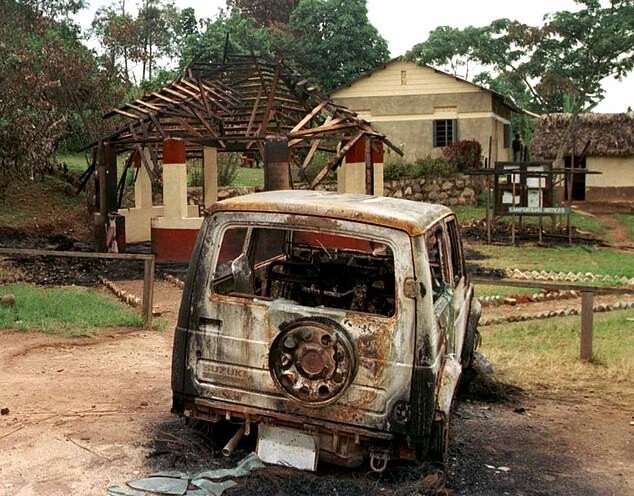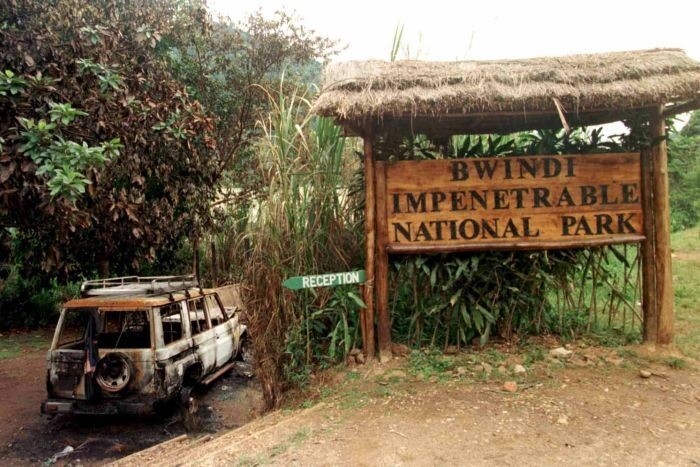The Tuesday horrific attack by ADF Rebels in which two foreign tourists and a Ugandan guide were killed has triggered an archive of previous attacks rebels have on tourists inside Ugandan national parks including the 1999 Bwindi massacre which claimed the lives of eight people.
The horrific attack unfolded in the early hours of March 1, 1999, when suspected Rwandan Hutu death squads (Interhamwe rebels) raided a tourist camp in Bwindi Impenetrable Forest National Park, southwestern Uganda, abducting 14 tourists and their Ugandan guide.
After a forced march through the jungle, all captives were bludgeoned and hacked to death.
Amid worldwide condemnation of the shocking atrocity, surviving eye-witnesses described how the victims; four men and four women, were murdered with machetes and axes as they were frog-marched towards the border with the Democratic Republic of Congo (DRC).
The rebels had separated those who spoke English, taking 14 people from a group of about 30 tourists in the camp who they forced to remove their shoes. The rebels killed the park guide by pushing him under a truck and setting it on fire.

In the aftermath, the victims were identified as Americans Rob Haubner and his wife, Susan Miller; Rhonda Avis and Michelle Strathern from New Zealand; Britons Martin Friend, Steven Robert, Mark Lindgren, Joanne Cotton, and Ugandan guide Ross Wagaba.
Ms Miller is believed to have been raped before she was brutally killed.
It is believed that about 150 heavily armed Interahamwe rebels hit the Bwindi camp just before 7 am on Monday, March 1, 1999, after a second group first created a diversion, drawing Ugandan troops stationed nearby away.
According to survivors’ accounts, soon after leaving the camp one of the women fell behind and was led away by rebels. An hour or so later another two women could not keep up and were also led away. Around 12 p.m. three of the men were separated from the main group. All were led away to be butchered.
Shortly before 4 pm the rebels and their remaining captives reached the DRC border. After a brief argument, the rebels then simply melted into the jungle. The captives then walked back and after about 40 minutes met pursuing Ugandan soldiers, survivors said.
But before abandoning the captives, the group had handed a note to a French diplomat, who was among those who had been taken, in which they said English speakers were targeted because of US and British support for the Tutsi-led Rwandan government headed by Gen Paul Kagame.
The Bwindi massacre dealt a crippling blow to Uganda’s tourist industry, particularly in Bwindi which is home to half of the world’s 600-plus mountain gorillas remaining in the wild.
Years later in 2006, Jean-Paul Bizimana, one of the Interahamwe rebels, was brought to trial in the High Court of Uganda.
On January 16, 2006, Judge John Bosco Katutsi sentenced Bizimana to 15 years in prison, one week after convicting him for killing the tourists and their Ugandan tour guide.
Bizimana had been first arrested in 1999 and detained until 2001 on suspicion that he was involved in the Bwindi massacre. He was then released and reportedly deployed as an enemy asset embedded with Ugandan troops operating in the eastern DRC. He worked with the UPDF until Uganda withdrew from the Congo in 2003.
He was seeking asylum in Uganda when he was re-arrested in 2005 near the Rwandan border.
Three other suspected Interahamwe were arrested earlier in 2003 and shipped off to the US to stand trial for the deaths of the Americans. They were identified as Francois Karake, 38, aka Rafiki; Gregoire Nyaminani, 32; and Leonidas Bimenyimana, 34, aka Zappy Gaddi.
Do you have a story or an opinion to share? Email us on: dailyexpressug@gmail.com Or follow the Daily Express on X Platform or WhatsApp for the latest updates.

